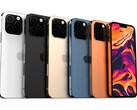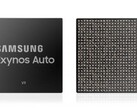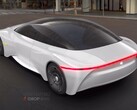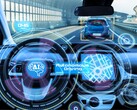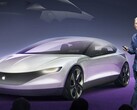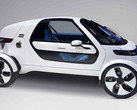The Apple Car could be the product that pushes the Cupertino-based tech giant over the US$3 trillion market cap barrier. However, it needs to be supremely safe, as there is low general public trust in autonomous (self-driving) electric vehicles (EV) at the moment. Conversely, safety has been cited as the best reason to trust in future automated vehicles (AV) that can boast of higher levels of technology. So it’s not a surprise that Apple has been considering this crucial factor for its Apple Car.
The subject of the first patent, via autoevolution, shows that Apple wants to make sure that the Apple Car is highly visible, especially at night, without breaking existing headlight restrictions. With that in mind, the patent entitled “nighttime sensing” suggests the implementation of long-wave infrared (LWIR) and near-infrared (NIR) sensors that would be able to detect potential collision objects at a much greater range. The possible viewing range goes from 60 m to 200 m (197 ft to 656 ft) from the front of the vehicle with this suggested system.
As well as making self-driving night trips safer, the Apple Car could also utilize a “waveform design for a LiDAR system with closely-spaced pulses”, as shared by UBS analyst Timothy Arcuri. LiDAR, which can stand for “laser imaging, detection and ranging” or “light detection and ranging”, targets objects with a laser and then measures the time it takes for a pulse to return to the sensor. Shorter pulses offer a greater “map” of the system’s surroundings, which would be ideal for an autonomous Apple Car that needs to avoid bumps. Recent rumors have suggested a self-driving Apple Car AV/EV could be launched as early as next year or in 2023. However, more conservative predictions have settled on 2024/25 and even 2028.

























